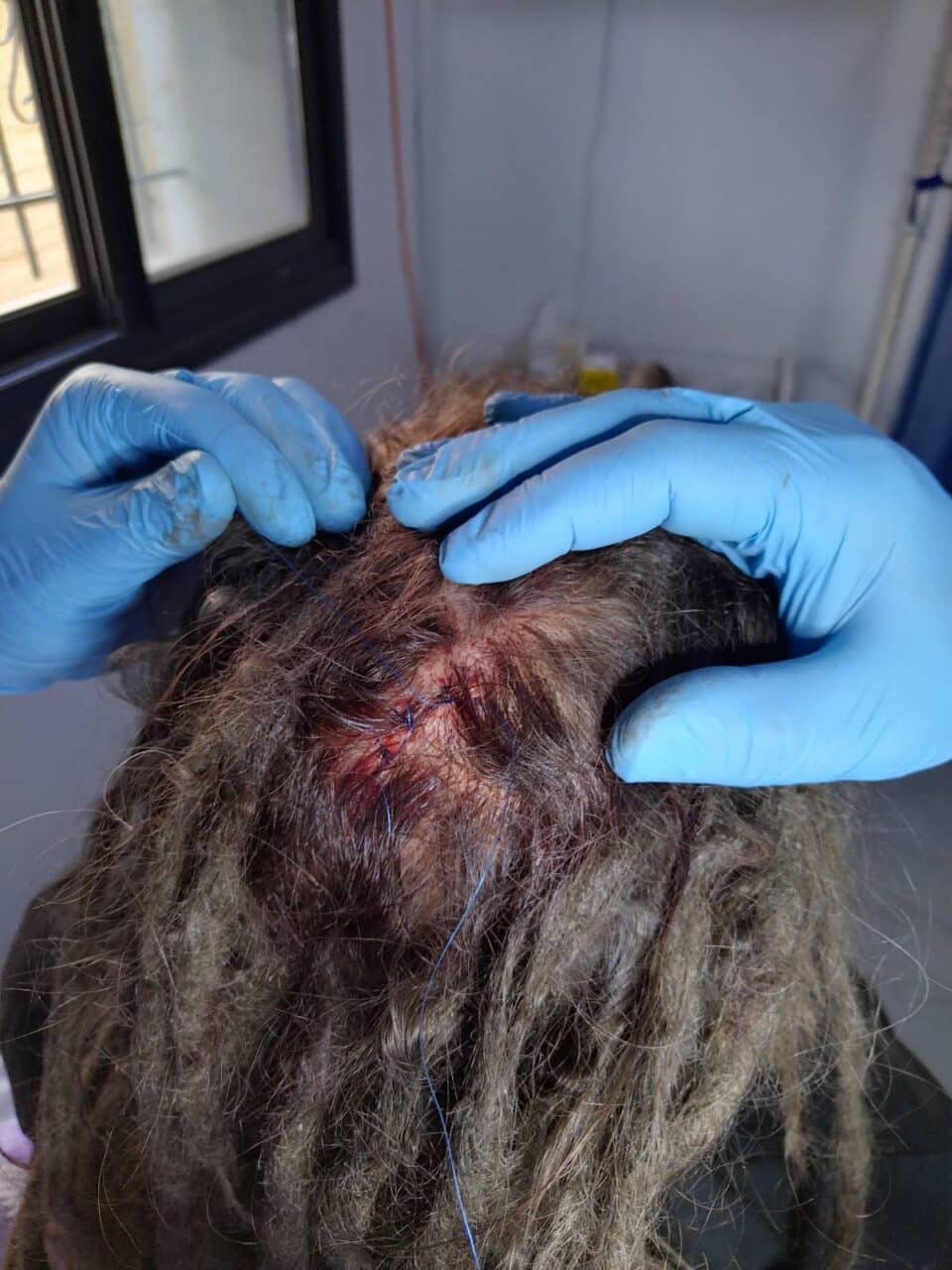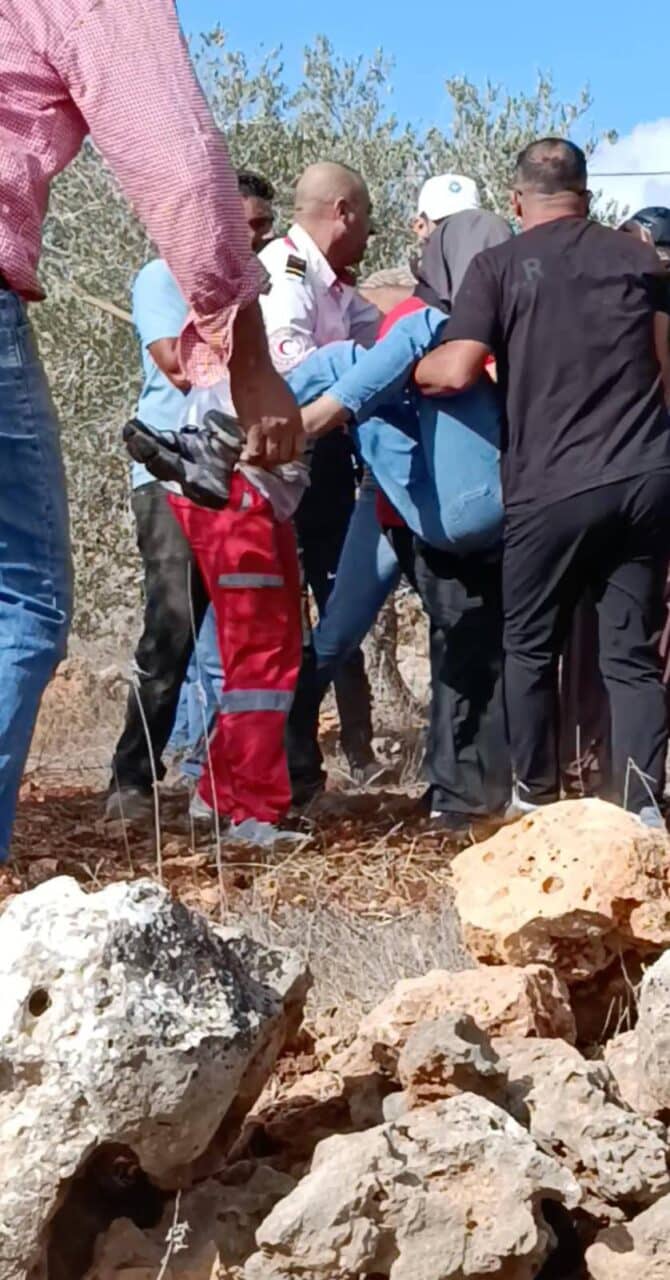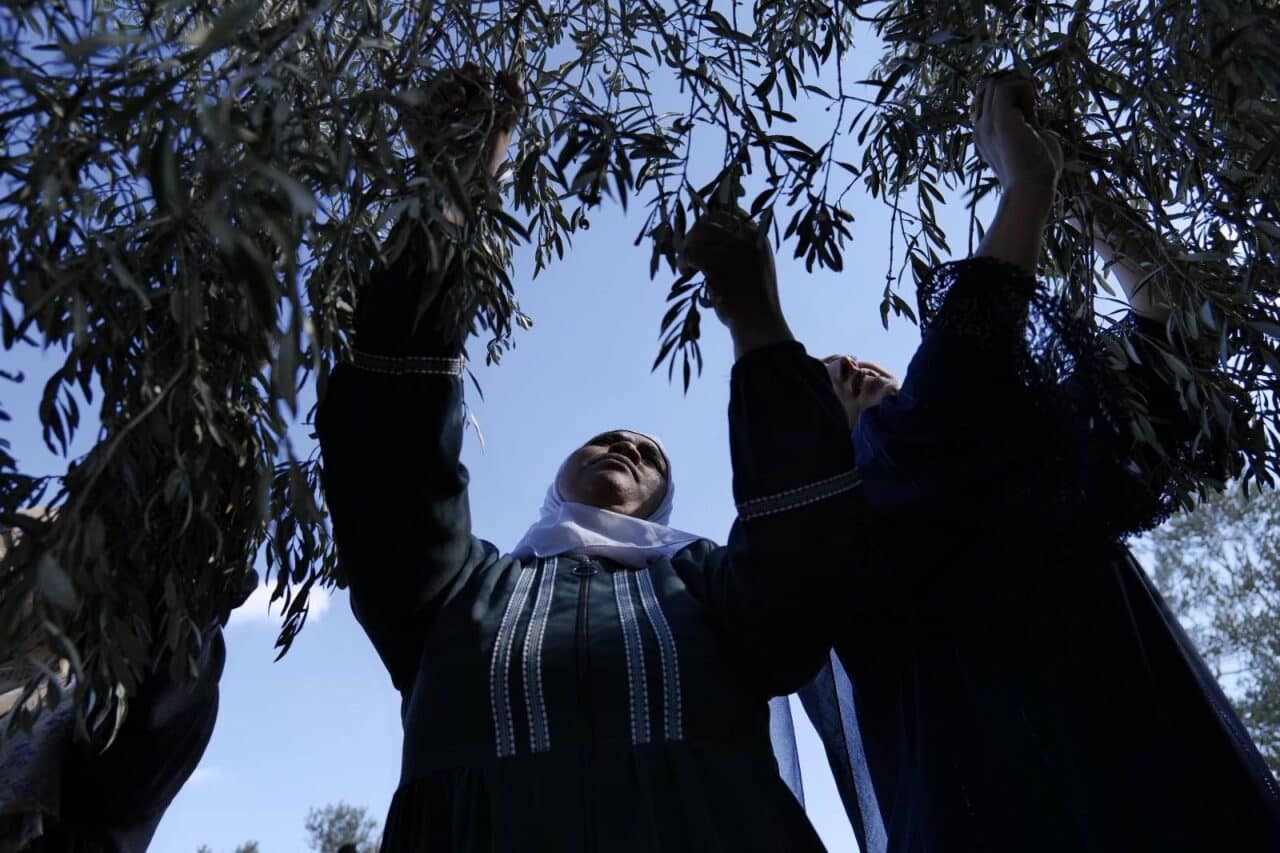-
For immediate release: Settlers Injure a Palestinian Woman and Two International Activists in TurmusAyya
October 19, Turmusayya, East Ramallah — Around 50 settlers attacked farmers and their supporters leaving a Palestinian woman as well as a Swedish activist and an Italian activist mildly to severely injured. Settlers also torched five vehicles and damaged others with stones. The attack was carried out under the watch of Israeli soldiers observing from […]
-
Settler violence escalates and Israeli army continue to block farmers from accessing their olive groves on Jabal Qamas, Beita
Settler violence escalates and israeli army continue to block farmers from accessing their olive groves on Jabal Qamas, Beita After more than 4 years of struggle on the land of Jabal Sabih, during which 19 Beita residents and our comrade Ayşenur Ezgi Eygi were martyred while protesting the establishment of the Evyatar outpost, the resistance […]
-
Vicious attacks on Palestinian farmers during olive picking in the West Bank
By Diana Khwaelid The suffering of Palestinians, especially farmers trying to reach their threatened lands, those located near illegal outposts and close to the wall, has not stopped. Armed settlers are killing and assaulting Palestinians, and are seizing Palestinian land under the protection of the Israeli army. Tulkarm / Ramin Town On October 17th, the […]
Action Alert An Nabi Saleh Apartheid Wall Arrests BDS Bethlehem Bil'in Cast Lead Demonstration Denial of Entry Ethnic Cleansing Farmers Gaza Global Actions Hebron House Demolition International law Israeli Army Jerusalem Live Ammunition Nablus Ni'lin Prisoner Ramallah Rubber-coated steel bullets Settlement Settlers Settler violence Tear-Gas Canister Video



